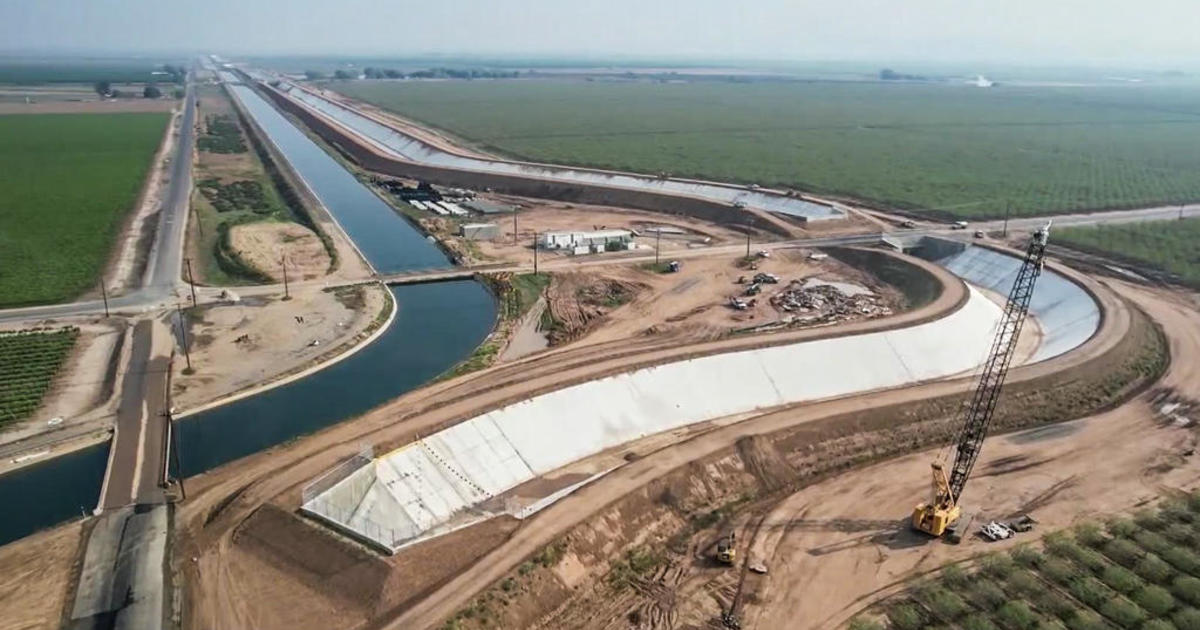SJSU's Ginger Market Is South Bay's First Autonomous Retail Store
SAN JOSE (KPIX) -- In a high-tech debut, San Jose State University launched the South Bay's first "autonomous retail store", where shoppers take the items, exit the premises, and are charged automatically later.
"Tap, grab and go. That way they spend zero time at the checkout system," said Raymond Luu, Associate Director of Commercial Services for San Jose State University.
At the Ginger Market, located in the ground floor of MacQuarrie Hall, the university has removed the cashier and self checkout stations, and retrofitted the ceiling with an array of cameras and sensors from San Francisco-based Standard AI. The cameras triangulate a shopper's position, and movements are represented with "wireframes" that resemble stick figures.
Engineers and technicians from the company then spent several hours mapping the inventory, which helps the system learn how to discern and detect various merchandise in the store, and when shoppers pick up and carry items out. The system, which Standard installed at no cost, boasts a 95% accuracy rate.
Standard's system utilizes artificial intelligence (AI) and machine learning, but not facial recognition, according to Luu, stating that the university was adamant about protecting students' privacy.
"We want to make sure that there's zero facial recognition. And there's no personal information being collected. It's just a wireframe. So that way they can see that there is a body and that's all it is, that there's a body taking off an item from the shelf," said Luu.
Elvis Nguyen, a freshman sociology major, was "impressed."
'
"I didn't really expect coming back to this. So it's like 'Whoa!'" said Nguyen.
However, Nguyen's receipt and purchase confirmation did not come until 20 minutes after leaving the store. Other shoppers experienced similar delays.
Luu said the system performed as expected, delivering the email confirmation and charging customers within an hour of the purchase.
"We definitely expect improvement, as the machine learns the behaviors of the shoppers in the store and the layout. So we do expect that to improve, to be much, much faster," said Luu.
Amazon was first to roll out a similar concept with its "Amazon Go" stores in 2016, and kickstarted the autonomous retail movement. The company has since opened a total of 24 stores in New York City, Chicago, Seattle, and San Francisco.
"You can see people, who don't believe their eyes. 'I'm going there, grabbing stuff, and leaving. Nobody is questioning me.' We're not used to something like that," said Professor Ahmed Banafa, an expert in artificial intelligence.
Banafa said this first foray of autonomous retail into Silicon Valley at San Jose State signals that it has found a good fit for its purpose, serving hungry students who are rushing in between classes and frustrated by standing in long lines. Adding that autonomous retail must clear the hurdle of "social acceptance" most new technologies face.
"On social acceptance, the technology always has this resistance at the beginning. But once they start seeing the fruits of the technology, everybody would like to have it. That's the future. Autonomous retail is the future," said Banafa.



